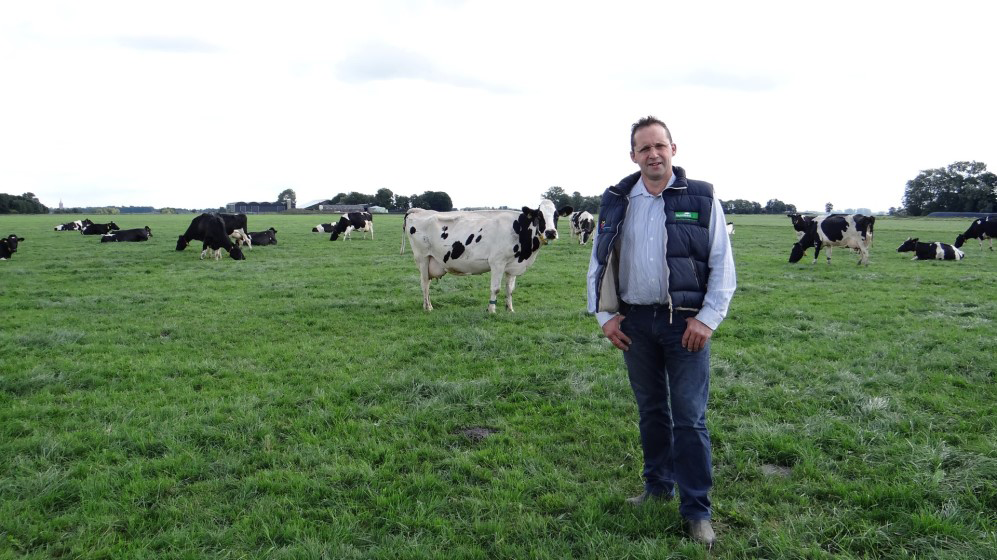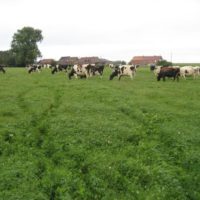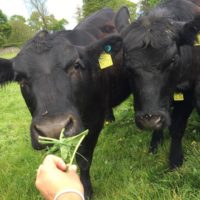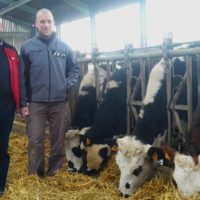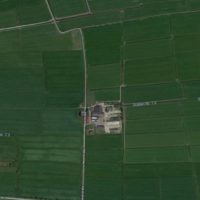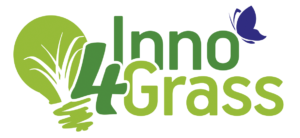Description
Wim van Ittersum (52) runs together with his wife Wolterien and children, a dairy farm with 150 dairy cows and 75 young cattle. The farmer thinks low costs and sustainability are important aspects for his company. These two issues can be found in the business operations of the farm, of which grazing is the most important link. According to the farmer this is one of the requirements for the grazing to succeed, so that there is as little delay as possible. Furthermore, the entrepreneur has arranged the plots in such a way that he never tries to get into one lot for two consecutive days.
Reason for the innovation
The strategy of the farmer is based on the low costs and the sustainability of the farm. He likes to combine this with meadow bird protection.
- Achievements: more fresh grass feeding and the efficiency of grass
- Results: More milk form grass, keep the losses of grass very low
Farm description
Environment
- Soil: Clay (25cm) on Peat
- Climate: Temperate oceanic
- Altitude: ±sea level
- Slope: flat
Grassland management
- Grazing: Yes
- Grazing management: Strip stocking
- Length of grazing periode: 7 months/year
- Main composition grassland: Perennial ryegrass and timothy grass
Structure
- Annual work units (AWU): 1,5
- Agricultural Area 100 ha UAA
- Permanent grassland 70 ha
- Herb-rich grassland 30 ha
- Production method: Conventional
- Stock
- 150 dairy cows
- 75 young stock
- Breed Holstein-Friesian
Animal performance
- Milk production: 8200 kg/year
Why it is working
The innovation is successful on this farm because:
- The farmer know how many grass is in the plots
- The innovation works at this company because the entire business is geared to grazing. This can be seen in infrastructure, housing and type of cow. Furthermore, grazing fits the vision of the entrepreneur.
- More biodiversity and meadow birds
